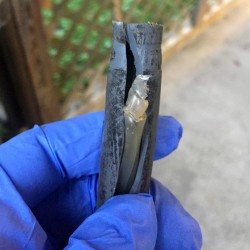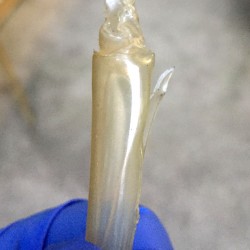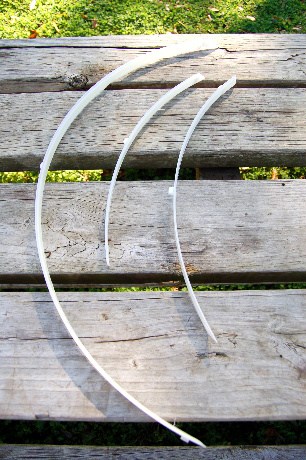Oh, the woes!
Of boat ownership.
Another term for boat is “open hole into which you pour money”. Everyone who has owned a boat learns this the hard way. Seems like something always needs maintaining or replacing or repairing. You would think by now that I would be able to circumvent these things. Alas, I still don’t have enough mechanical knowledge to head off everything that could happen. However, that’s not really a good excuse, because I do have a friend who is a mechanical whiz and knows a lot about boats of all kinds from his own vast experience.
So, I’m using my small “mud boat” for the Prothonotary Warbler project, which is powered by a Gator-tail surface-drive engine. That doesn’t really have much to do with this blog post, but I’m weird about details. Since I started using this boat/engine three weeks ago for the nest monitoring trips, I’ve noticed that it wasn’t running quite right; and once out in the middle of a lake, the engine kept slowing down, like it wasn’t getting fuel. I don’t know about you, but I never want to break down in the middle of a big lake!
Well, I know the basics of what to check in this situation and noticed that the primer bulb wasn’t staying primed. This bulb keeps the fuel flowing from the gas tank to the engine, but when it doesn’t stay “hard”, indicating it’s full of fuel, then you must pump it and then replace it soon because it’s probably just worn out. Been through that before on other engines. But before I did anything, I asked the mechanical whiz for advice.
He said that those fuel lines have an inner plastic liner that collapses, restricting fuel flow and if it were him, he’d check the ends of the hoses for liner collapse and that I should probably go ahead and replace the entire fuel hose. So, with that in mind, I stopped by a local boat shop on my way back home last week and described what was happening and mentioned that the fuel hose liner might have collapsed. Well, I’m just a woman, what do I know, right? With three men looking things over, one of them suggested replacing the fuel line to a small 1/4 inch diameter than the 3/8 and that would probably solve the problem. A more seasoned mechanic stepped in and primed the bulb and noticed a crack in my inline fuel filter. He promptly installed a new fuel filter and said that would solve the problem. Sooooo, I didn’t buy new fuel hose or a primer bulb. Again, I’m just a woman, what do I know, right? ( I drove away sheepishly suspecting that the mechanical whiz would be shaking his head at me at this point.)
So, off I went on another trip with the same fuel problems occurring. Once I quit for the day, and with the boat in tow, I stopped by the same boat place again and told them I wanted to replace the fuel hose and the primer bulb, purchased said items and left. This afternoon, I assisted my oldest son in removing the old hose and bulb and replaced them with the new. We primed the new bulb and cranked up the engine, and everything seemed to work just fine. The bulb held a prime, so I’m good to go.
I picked up the old fuel hose off the ground to dispose of it and looked in the end that had been connected right at the top of the gas tank and saw something in the hose.
“Son, do you see something down in there?”
“Yes ma’am. It looks like a piece of trash.”
He grabbed his razor cutter and sliced open the end of the hose and said, “What the heck is THAT?”
And a HUGE light bulb went off in my head. “I should have listened to the Whiz Kid from the get-go. It looks like the collapsed liner!”
And sure enough, that is exactly what it was.
Like me, most folks don’t realize that fuel hose has a plastic liner in it that degrades over time and collapses, restricting the fuel flow. It can happen at any of the fittings or even down the entire length of hose.
If you are out in the Gulf, or on a rough lake like I sometimes have to cross, this collapsed liner can cause a complete halt of fuel flow, and there you are stranded in a precarious situation. This could result in a boating accident or worse. So, all you boat owners out there who haven’t changed your fuel line in a couple of years better add that to your spring maintenance before you put that boat in the water!
Further, ethanol in regular unleaded gasoline degrades this hose very, very rapidly. For that reason, you should never, ever use gasoline with ethanol in your boat motors or other small engines, like lawn mowers and generators. Look for gas stations that proudly fly a banner stating “NO ETHANOL” for your boat fuel. You’ll pay a little more per gallon, but it is so worth it in the long run. Even though I’ve never run gas with ethanol in it during the four years I’ve had this engine, the lining still collapsed. It’s just that ethanol would have sped up this process. Did you know there are even websites that list stations that sell ethanol-free gas?
Can you see the lawsuit commercials now? “If you or someone you know suffered fuel line collapse resulting in a boating accident, then you may have grounds for compensation. AAA Attorneys – 1-800-LAW-SUIT. Call us today.”
You know what they say — “The more you know!”
Safe boating, friends,
BW
Comments are welcomed and encouraged!








Ethanol free gas ONLY in our boats, lawnmowers, and ATV’s!
You’re one smart chick! Or is Hubby one smart rooster?
We actually heard it together from a neighbor who’d burnt up his motor. We figured if it would do that to a boat motor it would do it to other small motors.
Spend the extra dime on 100% gas.
Smart, smart cookies!!!
You may have just solved our riding mower problem!! It starts, runs a lap or two, dies and will not start again until we shake the heck out of it or spray carb cleaner into the filter area. I think I’ll see about replacing that fuel hose and filter. I’ll let you know if it works or if we have to borrow a trailer and haul it to the mower shop 2 miles from here.:)
Probably so. Read Miriam’s comment. I didn’t go into details, but ethanol doesn’t hurt our vehicle hoses/parts because we run it through there so fast, it doesn’t have time to degrade things. But for those vehicles that only get seasonal use, and we never run the fuel out, gas with ethanol is very, very destructive! One day I’ll write a post about what happens when we don’t “winterize” our boats, generators, etc.
We burned up a boat motor and fouled the motors of 4 wheeler and a weed-eater before finally figuring out it was the ethanol gasoline. And just to underscore that conclusion, lent the 4 wheeler to a relative to keep and use for an extended period, but forgot to tell him to use only non-ethanol gasoline. It ate thru and jellified soft parts so badly the fuel ended up in a puddle on his shed floor. Yep….ethanol blend might work fine for motors that get used every day, in more arid parts of the country. But down on da’ bayou…our motors that might sit for days, weeks, maybe even a couple months between uses, in weeks of 80-100% humidity…nope! And regarding condescension…. in my experience, it really doesn’t matter if one knows a lot or just a little or next to nothing….condescenders gonna condescend! Enjoy reading your thoughts! 🙂
You are spot on, girlfriend! And as I told Cam, maybe I’ll remember to write a post about winterizing boats and other things we don’t use in the winter! It’s essential to the life of our gadgets we spend so much money on.
I don’t know a thing about boat motors and their parts. But I do know that I’m happy you are posting more often. Your articles are always so interesting. Even about motors!
Good, good! Glad you enjoy my rantings, ravings, and wanderings!
I told hubby about your post and he said he bet that’s what it wasays. We had a weed eater we used once or twice at the end of summer a couple of years ago that had to be rebuilt because of the gas. We plan to go to the dealer tomorrow to get new hoses and filters.
Yes! My work is complete LOL!! I helped a poor, abused engine! Well, I’m just joking with ya but I’m happy to help and certainly hope this solves the problem! I guess by now you know what places sell ethanol-free gas? Down here, there’s only ONE pump, and it’s labeled right on the button you press for fuel grade. You have to look closely or ask them which pump it is. Don’t assume it is ALL pumps, because typically it isn’t, and it’s usually the grade just above 87! Good luck!